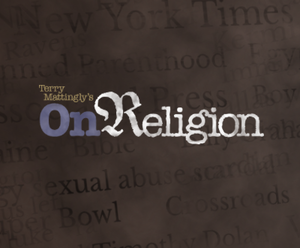
It didn’t matter where Pete Buttigieg traveled in Iowa and the early Democratic Party primaries — voters kept asking similar questions.
Yes, they asked about his status as the first openly gay major-party candidate to hit the top tier of a presidential race. But they also wanted to know how his faith journey into the Episcopal Church affected his life and his take on politics.
“Those who are on my side of the aisle, those who view themselves as more progressive, are sometimes allergic to talking about faith in a way that I’m afraid has made it feel as if God really did have one political party,” said Buttigieg, addressing a webinar for clergy and laypeople in his denomination’s House of Deputies.
“It was very important to me to assert otherwise, but also to talk about the political implications of the commandments to concern ourselves with the well-being of the most marginalized and the most vulnerable and the idea that salvation has to do with standing with and for those who are cast out in society. … That energy carried the campaign, in ways that I never would have guessed.”
But highly motivated religious believers are, of course, often divided by conflicts about doctrine that then spill over into politics.
Buttigieg waded into one such controversy during the campaign when candidate Beto O’Rourke said congregations and religious institutions that reject same-sex marriage should lose their tax-exempt status.
“If we want to talk about anti-discrimination law for a school or an organization, absolutely. They should not be able to discriminate,” said Buttigieg, on CNN’s State of the Union broadcast. “But going after the tax exemption of churches, Islamic centers or other religious facilities in this country, I think that’s just going to deepen the divisions we are already experiencing.”
Other Democrats face similar hot-button issues. Former vice president Joe Biden, during his fight over the “soul of the nation” with President Donald Trump, is sure to hear questions about his Catholic faith and his evolving beliefs on moral and political issues.
Biden backed the Religious Freedom Restoration Act in 1993 and the Defense of Marriage Act in 1996. His views changed, while serving with President Barack Obama.
A key moment came in 2016, when Biden performed a same-sex marriage rite. At that point, three prominent bishops — including the president of the United States Conference of Catholic Bishops — posted a message online stating that this act would cause confusion about Catholic doctrines on marriage and the “corresponding moral obligations of Catholics. What we see is a counter witness, instead of a faithful one founded in the truth.”
Catholic voters who are active in church life, to one degree or another, are often pivotal swing voters in American elections. Trump’s success with Catholics was crucial in 2016, especially in Rust Belt states.
However, strategists now have to recognize the clout of a very different group of Americans — the rapidly growing number of religiously unaffiliated voters. Combined with atheists and agnostics, these “nones” have become the Democratic Party’s largest religion-linked group.
The Biden team is hiring specialists to work with a variety of faith groups — even evangelical Protestants. But that is not enough in 2020.
“It’s always good when candidates reach out to religious groups,” noted political scientist Ryan P. Burge of Eastern Illinois University, co-founder of the Religion In Public website. “But if I had Biden’s ear, I would say that he needs to find a way to reach out to ‘nothing in particulars.’ They are 20% of the population, aren’t super motivated to vote and have trended away” from Democrats since 2008.
The bottom line, said Buttigieg, is that political leaders cannot ignore the fact that religious faith affects how millions of Americans approach pivotal issues in American life — from race to health care, from climate change to economic justice. This remains true, he said, even though this is “no longer a time in which religious institutions hold a monopoly on trust and truth. I believe that to be a good thing.”
Yet somehow, Americans must regain some shared sense of “trust amongst people — in one another, not just in our institutions,” he explained. “If no one has the authority or credibility of being a trusted source, then, perversely, people will trust some of the most untrustworthy places and things.”










